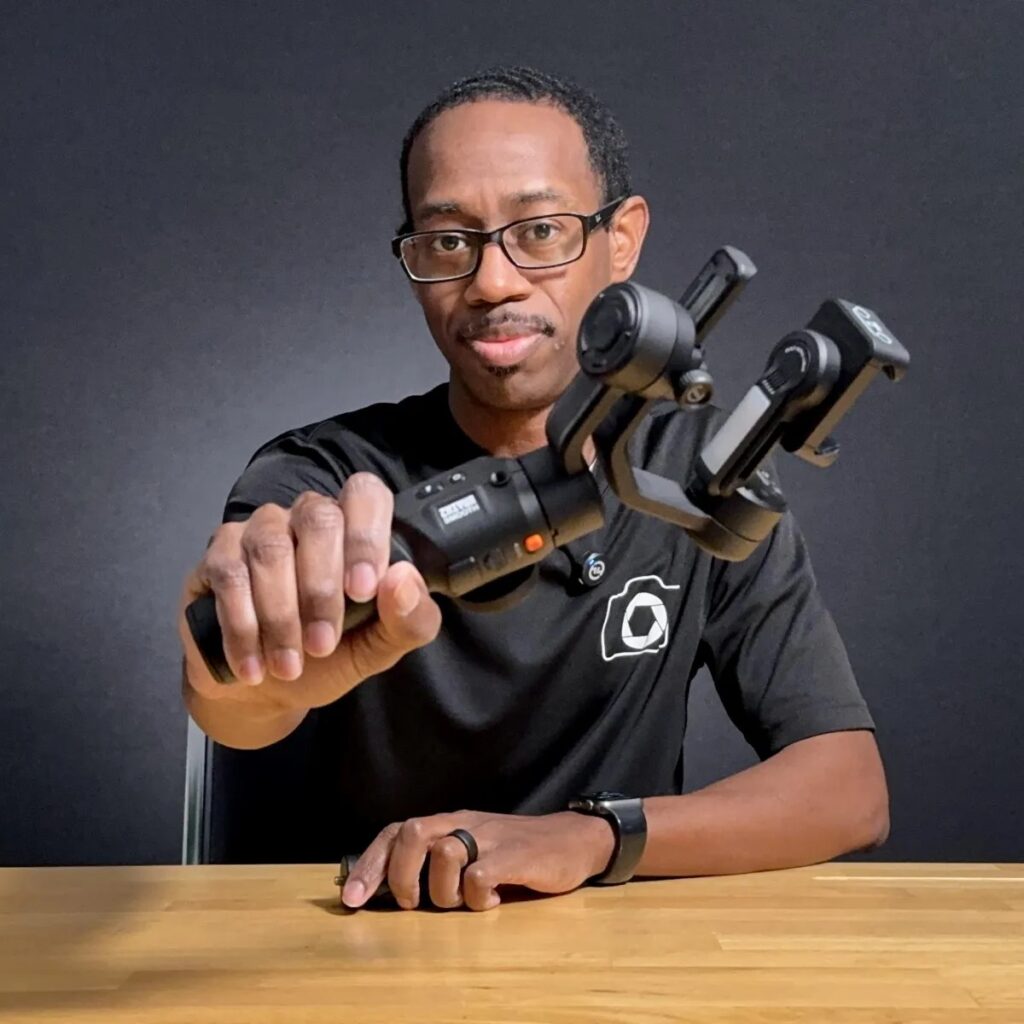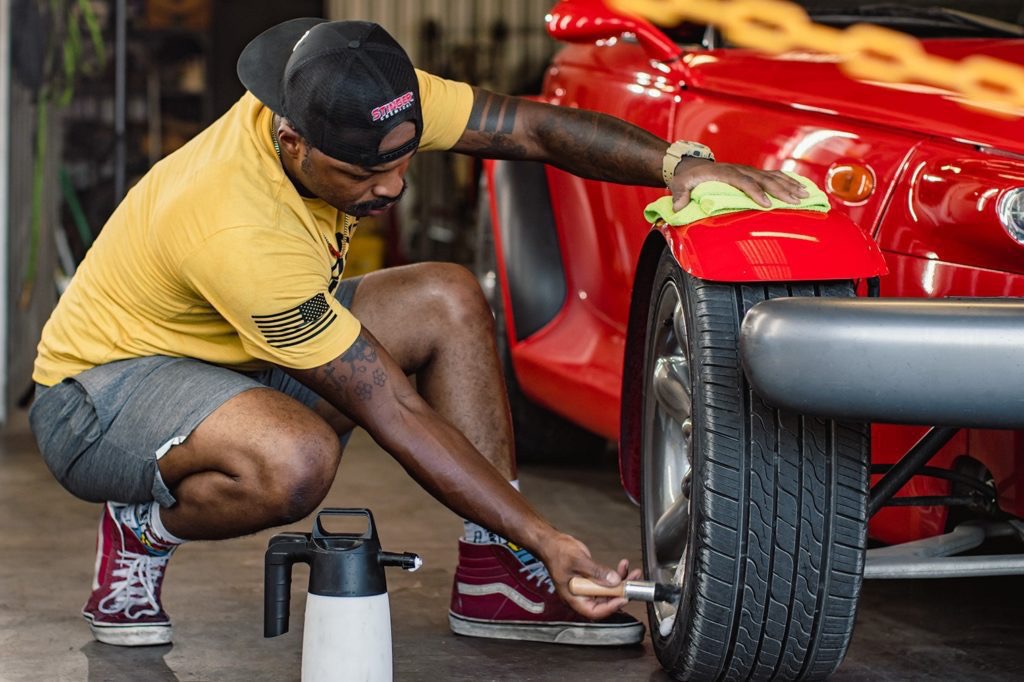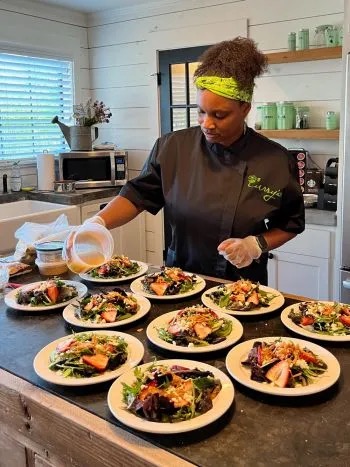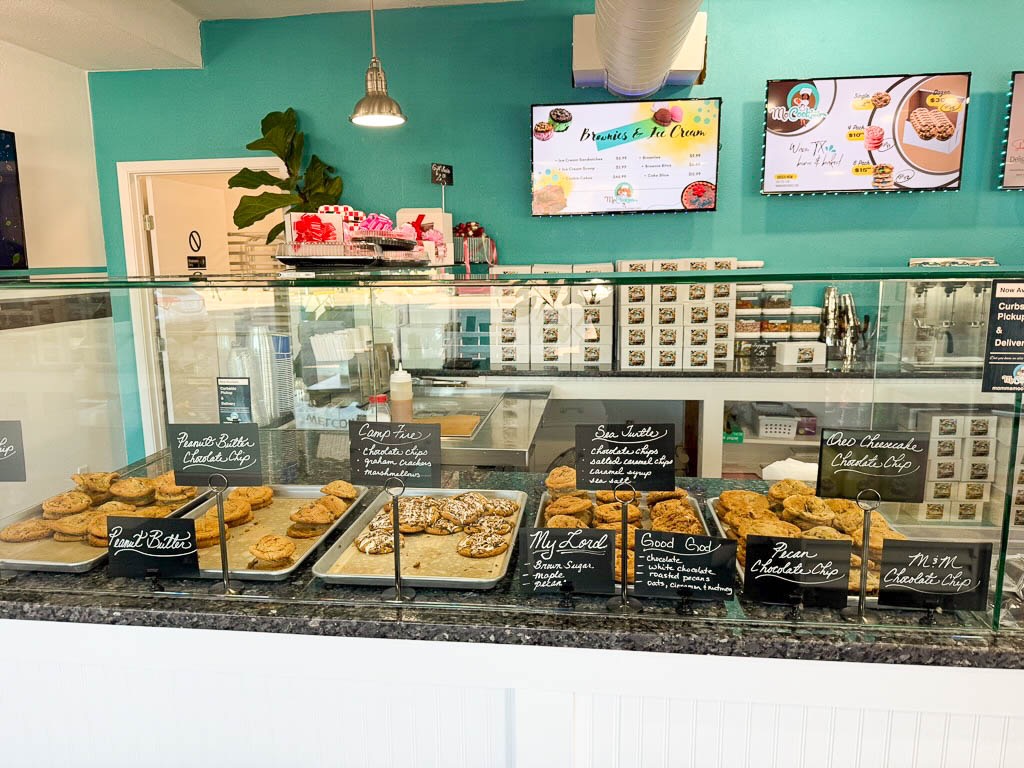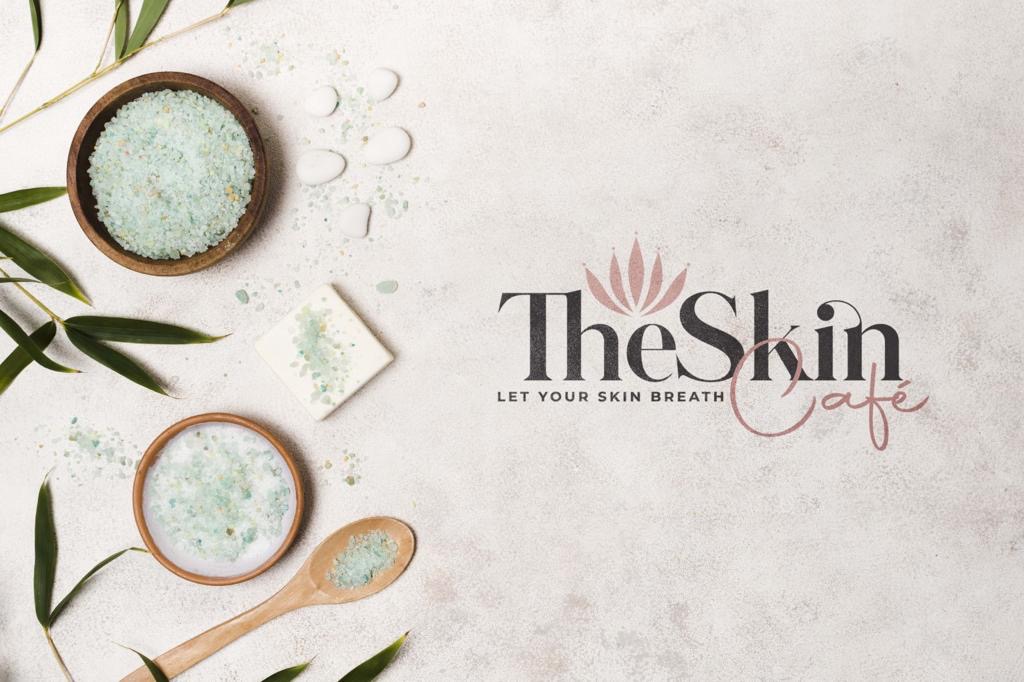This week is OCD Awareness Week.
OCD Awareness Week is a worldwide event that serves to dispel myths about obsessive compulsive disorder, break the stigma around mental illness, provide education about the disorder, and share how to support those affected. There are over 200 million people worldwide living with OCD, and public misconception can prevent them from accessing timely and effective treatment needed to advance from suffering to thriving. This week, whether you share facts, tell your own story, or otherwise support OCD Awareness Week, you are making a powerful difference.
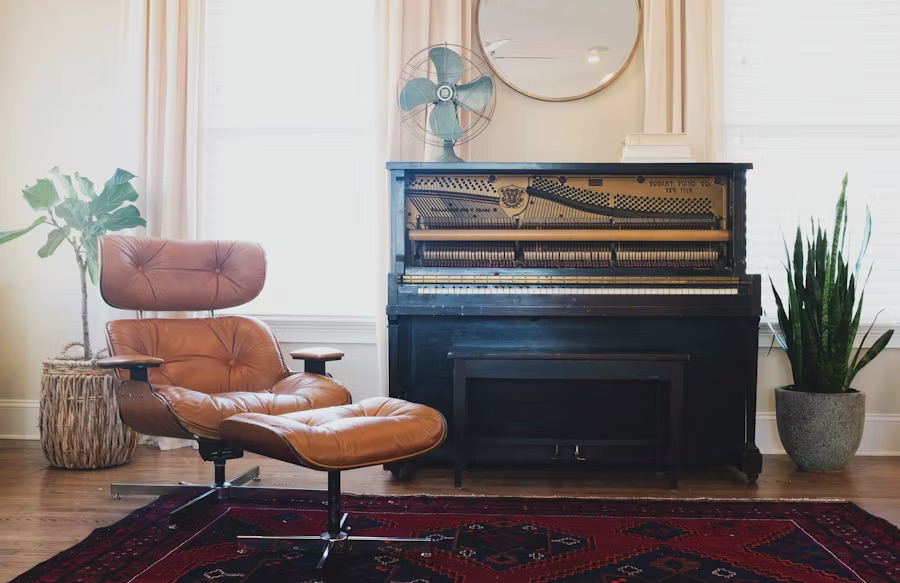
I was officially diagnosed with OCD at 21, meaning I lived a long time not understanding what my brain was doing to itself. Obsessive Compulsive Disorder is also called the doubting disorder. It not only makes you doubt yourself and all aspects of your life, but, most of the thoughts that come with OCD are entirely illogical, which makes you doubt others, including those you love and trust most, and your basic understanding of reality.
Obsessions are unwanted, intrusive thoughts, images, or urges that trigger intensely distressing feelings. Compulsions are behaviors an individual engages in to attempt to get rid of the obsessions and/or decrease distress. Together, they create harmful cycles of thinking and patterns of behavior. There is a public misconception that OCD is just a minor personality quirk or preference and that everyone is “a little bit OCD.” In reality, OCD is a serious and often debilitating mental health disorder that affects people of all ages and walks of life.
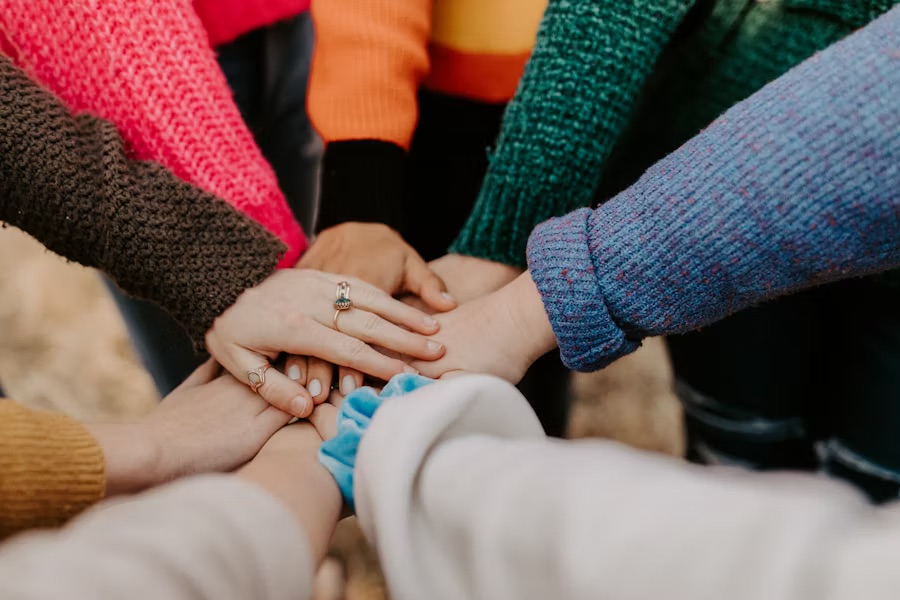
One of the unintended consequences of mental health education and advocacy amidst a time of social media is the watering down of clinical terminology. Many people can experience obsessive thoughts and/or compulsive behaviors at some point in their lives, but that does not mean that we “all have some OCD.” In order for a diagnosis of OCD to be made, this cycle of obsessions and compulsions must be so extreme that it consumes a lot of time, causes intense distress, or gets in the way of important activities that the person values.
Again, not all behaviors associated with OCD are indicative of a mental disorder, and a comprehensive evaluation from a qualified mental health professional is highly encouraged before self diagnosing. Obviously, I passed my tests with flying colors; no studying needed. I was in talk therapy, working out my thought processes with a mental health professional when she simply suggested the idea. The recognition and affirmation shocked my system. I was connected with a psychiatrist who gave me a lot more information on the specific diagnosis, connecting me with OCD specific resources. Going to therapy with OCD has been described as being in a boxing ring with an imaginary opponent, and I can attest to that. A lot of it is straight up exposure therapy or forcing yourself out of thoughts and behaviors that have been crafted for a sense of safety.
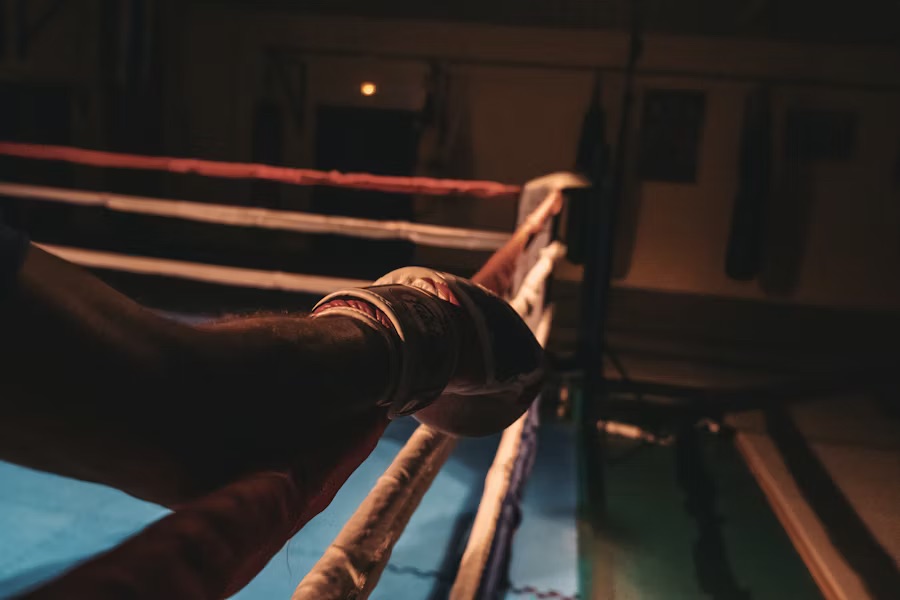
This week, I challenge you to share your story, listen to the stories of those living with OCD, share findings on the reality of it, and challenge myths and misinformation you see regarding this diagnosis.
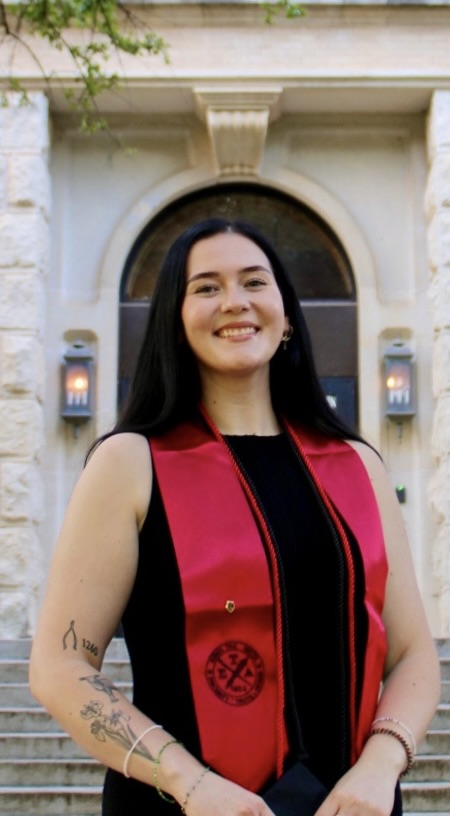
Elizabeth Riley hails from Tennessee and is a graduate of English Literature and Professional Writing & Rhetoric from Baylor University. With passions in archival preservation, communal connection, and women in sports, she writes because it matters, with hopes of bridging villages and fostering revelry amongst them.
The Month of October is Domestic Violence Awareness Month, where communities are going the extra mile to raise awareness and take a stand against domestic violence. Advocates say that awareness is the first step towards prevention and making lasting change, and here in Waco, the Family Abuse Center is advocating for the education of our community on the cycles of violence. Early intervention, prevention education, domestic violence education, and community awareness can interrupt the intergenerational cycle of violence and reduce the social acceptance of domestic violence.

The Family Abuse Center offers a free, safe, and confidential place for adults and children to begin to experience life without violence. Their professional staff listens, advocates, and provides support to all those seeking services. They offer counseling, transportation, job and life skills education, and more.
Each October, during Domestic Violence Awareness Month, the Family Abuse Center recognizes the victims who have died due to domestic violence during the previous year. This year, the Family Abuse Center will be gathering on October 17th at the Waco Suspension Bridge in memory of the Texas women and men killed by their intimate partners. Domestic violence violates an individual’s privacy, dignity, and security due to the systematic use of control and abuse. This day provides an excellent opportunity for citizens to learn more about domestic violence issues and show support for the organizations and individuals who are providing advocacy services to domestic violence victims.
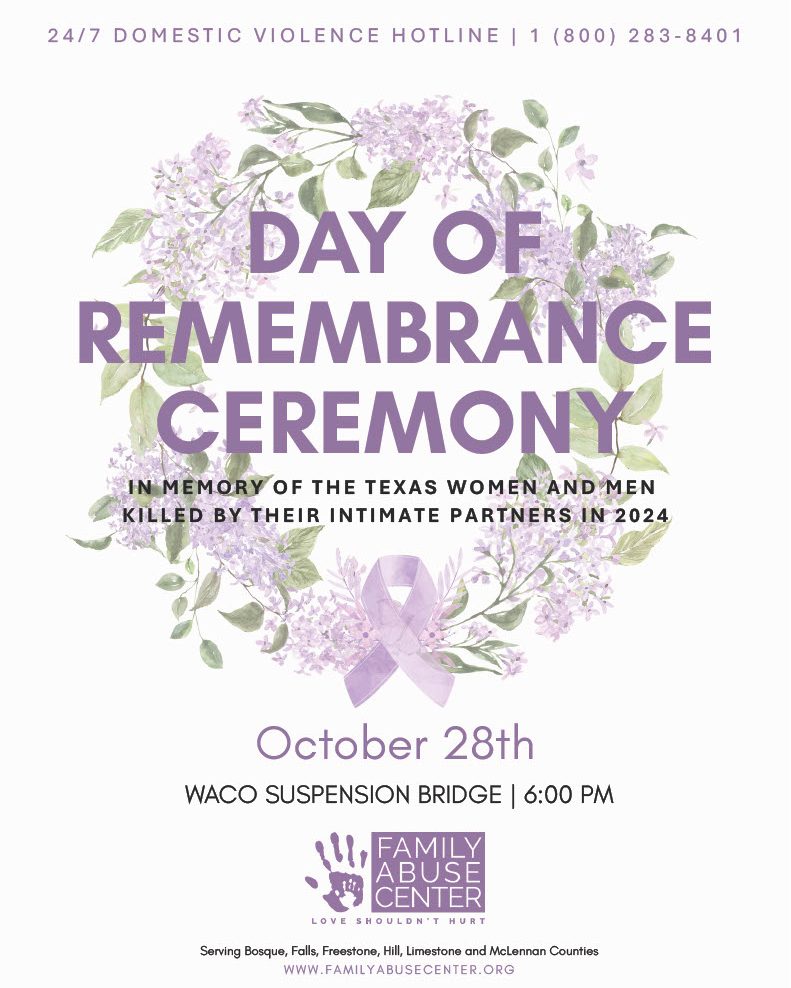
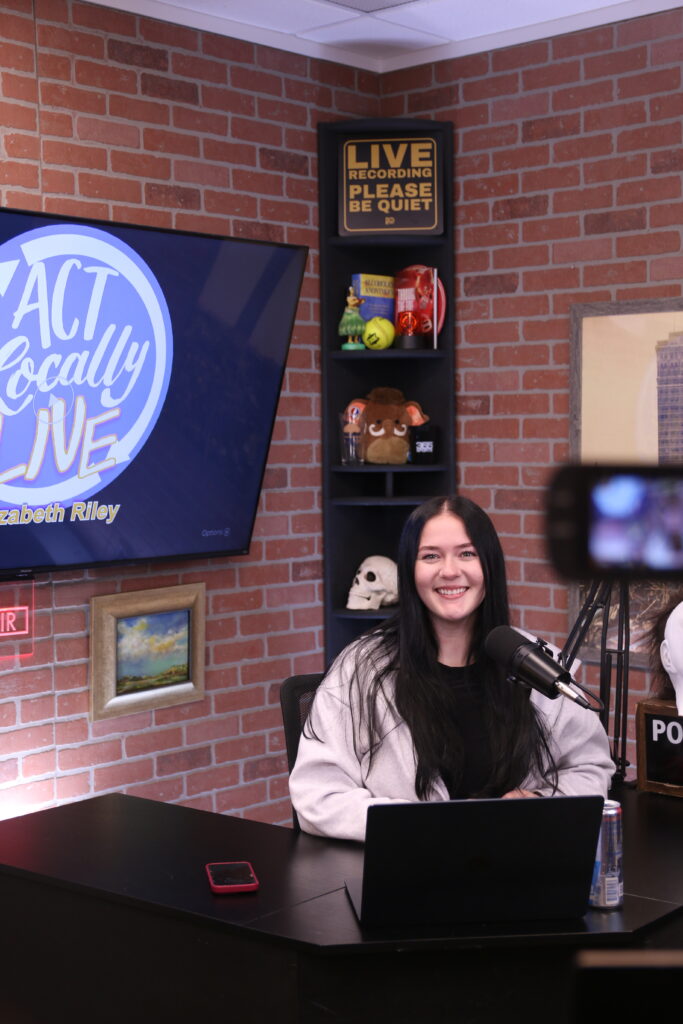
Elizabeth Riley hails from Tennessee and is a graduate of English Literature and Professional Writing & Rhetoric from Baylor University. With passions in archival preservation, communal connection, and women in sports, she writes because it matters, with hopes of bridging villages and fostering revelry amongst them.
Baylor University’s campus looks a little different at the moment. There are fenced-off portions of campus undergoing obvious reconstruction, accompanied by the sights of orange cones and the shouts of crew workers. A major project at the heart of campus that is causing much of this congestion is a huge step towards Baylor’s future.
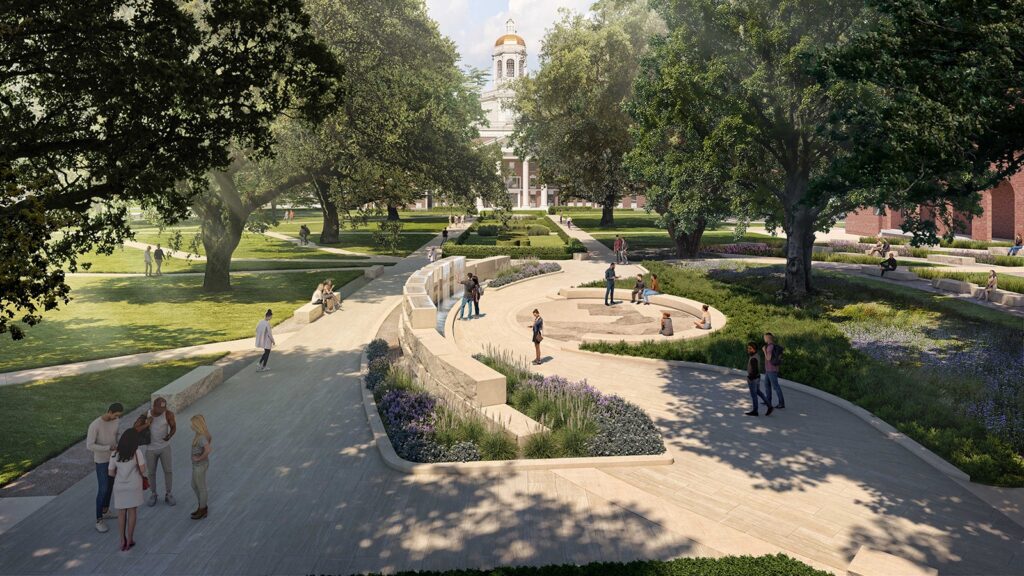
The Memorial to Enslaved Persons is restructuring Founders Mall to acknowledge the immoral use of chattel enslavement during the building of Baylor’s original campus in Independence and the activities of daily life for nearly two decades. On Baylor’s ‘Background & History for a Memorial to Enslaved Persons’ webpage, it states, “It is an acknowledgment of a challenging part of our history while helping us see the need for Christian repentance while we press toward renewal, reconciliation and restoration.” Unfortunately, this isn’t the only accountability Baylor needs to take.

Previously, Baylor University and the City of Waco attempted to reconcile with Indigenous populations that originally inhabited the area. In October of 2020, Baylor authorized research on the history of Baylor’s land and its connections to Indigenous People, and in November of 2022, the University presented a Land Acknowledgement during Native American Heritage Month. In May of 2022, the Baylor Board approved a four-phase plan to address priorities identified by the Commission on Historic Campus Representations:
Phase One is complete, with the new Campus Experience Project.
Phase Two formally began February 20, 2024, with the ceremonial groundbreaking for the Memorial to Enslaved Persons. This phase also includes additional historical context being placed around the existing Judge Baylor statue, connecting his history of enslavement with those individuals recognized by the Memorial.
Phase Three will include enhancements to Speight Avenue that explain how the land upon which Baylor sits evolved and was developed, often at the expense of communities and individuals already occupying the property.
Phase Four will feature improvements along the Quadrangle.


Elizabeth Riley hails from Tennessee and is a graduate of English Literature and Professional Writing & Rhetoric from Baylor University. With passions in archival preservation, communal connection, and women in sports, she writes because it matters, with hopes of bridging villages and fostering revelry amongst them.
If you or someone you know is struggling or in crisis, help is available. Call or text 988 or chat 988lifeline.org to reach the 988 Suicide & Crisis Lifeline.
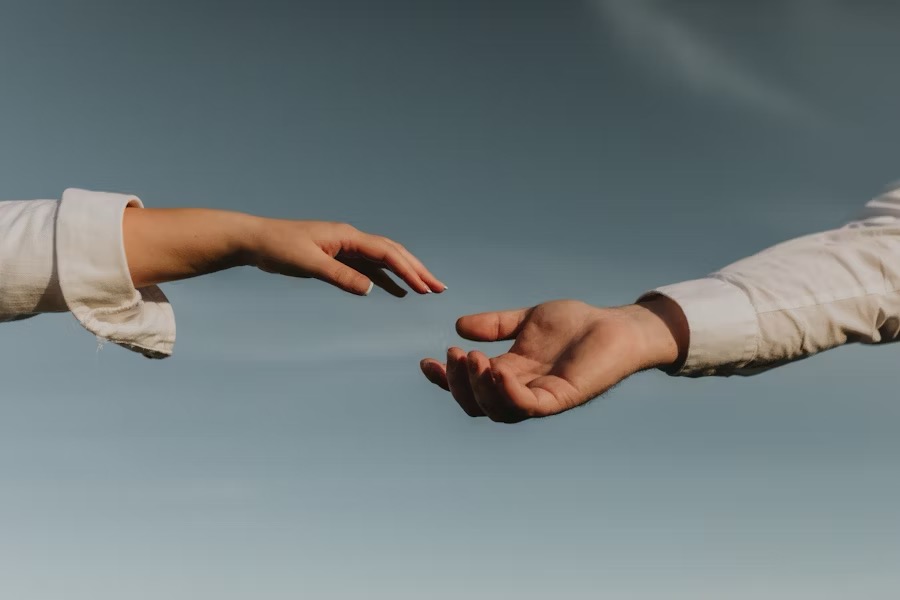
September is upon us, and our duty this Suicide Awareness Month is to start conversations regarding mental health, spread hope to those in need, and spark meaningful action around one of the most urgent crises of our time. World Suicide Prevention Day is Wednesday, September 10th, but all month long, mental health advocates, prevention organizations, survivors, and allied community members are uniting to promote suicide prevention.
Suicide affects millions of people every year, yet too many struggle in silence. It starts with one conversation: ask someone how they’re doing and be ready to truly listen. No one has to face their battles alone. Whether you’re facing challenges, hoping to support a friend or loved one, or looking to help, your voice matters.
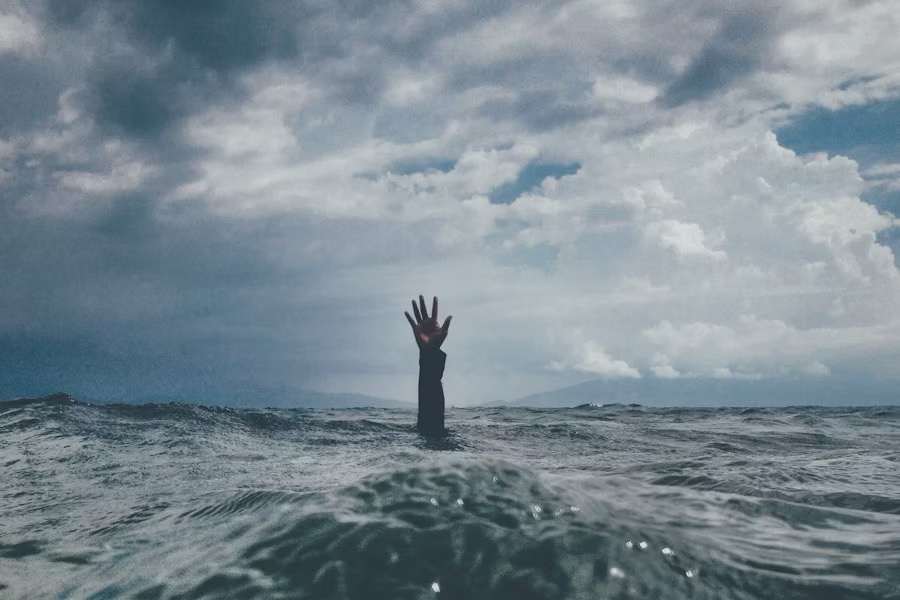
Here in Texas, there are three branches of the American Foundation for Suicide Prevention. AFSP of Central Texas is hosting an Out of the Darkness fundraiser walk in Waco on September 27, 2025. With over 350 participants already joined, this walk at Brazos Park East is the perfect way to participate in the community in a way that matters.
Help exists, and healing is possible. Inform yourself of warning signs for suicide, encourage open conversations about mental health, and connect people to proven treatments and resources.
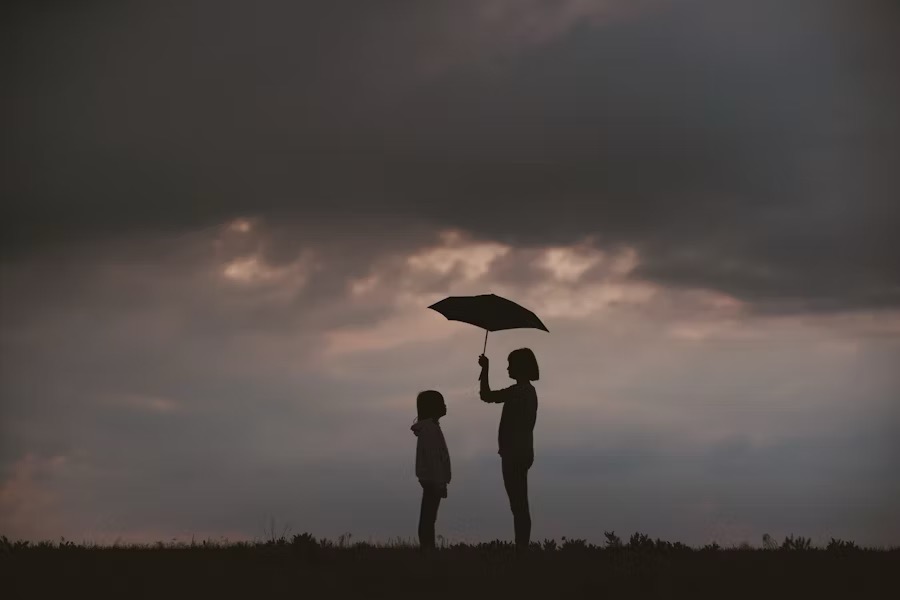

Elizabeth Riley hails from Tennessee and is a graduate of English Literature and Professional Writing & Rhetoric from Baylor University. With passions in archival preservation, communal connection, and women in sports, she writes because it matters, with hopes of bridging villages and fostering revelry amongst them.
by Jasmine Wise
Last Thursday I was invited to a Pilates class at the Baylor Stadium by one of my dear friends in Waco. Neither she nor I had any idea what to expect. Even as we pulled up I questioned her on things like, shoes or no shoes; does it cost or not; where exactly is the class? She knew none of those answers. The whole thing was a surprise to us both. We walked up the hill toward the Robert Griffin III statue and saw people preparing themselves for the class by placing mats on the ground and directing their children about what to do while they were working out. The instructor was introducing himself.
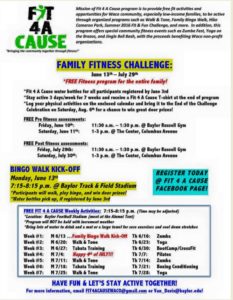 At first, I was so excited for this free exercise class and to stretch out my body that I didn’t notice much about the other people stretching out around me. I soon realized something was different about this class. This was not an ordinary free workout for those associated with Baylor. This was a Waco community workout. The workout students were a diverse group of people. I do not mean in exercise level. (But there were some people doing level three the entire time, and it wasn’t me). I mean in class, race, and gender. I saw people from all ends of the spectrum. I do not want to speculate what those people did for a living nor their education level, but let’s say we represented Waco. You had my friend and I both childless African American Baylor graduates and the middle-aged Hispanic women next to me with her three children.
At first, I was so excited for this free exercise class and to stretch out my body that I didn’t notice much about the other people stretching out around me. I soon realized something was different about this class. This was not an ordinary free workout for those associated with Baylor. This was a Waco community workout. The workout students were a diverse group of people. I do not mean in exercise level. (But there were some people doing level three the entire time, and it wasn’t me). I mean in class, race, and gender. I saw people from all ends of the spectrum. I do not want to speculate what those people did for a living nor their education level, but let’s say we represented Waco. You had my friend and I both childless African American Baylor graduates and the middle-aged Hispanic women next to me with her three children.
I took particular interest in two women. The first was a middle-aged white woman with two middle school-aged children. Honestly, the reason I took interest was negative. Both of the children were right in front of my friend and their mats kept blowing towards her. I was confused as to why neither the woman nor her kids tried to stop them. The mat blowing towards my friend thing happened a few times. I must admit, at first I was frustrated. I take exercise seriously! This seemingly unnecessary distraction was messing with my workout!
God quickly quieted my spirit and reminded me that this is the Church. This is what the community I say I want to be a part of looks like. There are Hispanics mothers, black men, Baylor students and graduates, all sharing the same space. I quickly got over my frustration, changed my attitude, and continued exercising.
The second women I took interest in was a black woman in her late 50s or early 60s. She sat elevated in the back of class. She was not on the ground for apparent health reasons and could not complete all of the exercises. Her determination to move and get healthy inspired me. She never quit moving, and I saw focus on her face as she completed each exercise. She gave me some new perspective on health. She showed me that every little bit helps. My only regret from this day is not talking to her. I should have asked her about her life, what brought her out on that day, what her family is like? I let this moment pass by.
When you are a part of something great you do not always realize until you take a step back.
I reflected on the experience the next day. I gained more appreciation for the town I live in. I loved Waco before. I love it a little bit more each time I interact with its people. This day was no different. This one event showered me with lessons. I realized how important it is to model healthy behaviors for the next generation as mothers exercised in front of and with their children. I saw diverse groups coming together with a common goal and nothing negative happened…something that felt like a contrast to what is happening in our country right now. I saw how important it is to take opportunities for conversation when they arise. These conversations create bridges across lines that usually divide us. This community workout is ripe with men and women from different backgrounds. Imagine what I could have gained from talking to that older lady for five minutes.
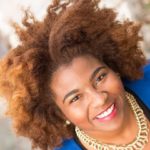 By day, Jasmine Wise is a graduate student in the department of Sociology at Baylor University working on her Ph.D in Applied Sociology. By night, she is a youth leader at Acts Church in Waco, TX. By weekend, she develops her passions for public speaking, growing churches, developing communities. She wrote her first book, “Confessions of a Sinner”, in the Summer 2015. If you want to get in contact with Jasmine, please visit her website: drjkaw.com.
By day, Jasmine Wise is a graduate student in the department of Sociology at Baylor University working on her Ph.D in Applied Sociology. By night, she is a youth leader at Acts Church in Waco, TX. By weekend, she develops her passions for public speaking, growing churches, developing communities. She wrote her first book, “Confessions of a Sinner”, in the Summer 2015. If you want to get in contact with Jasmine, please visit her website: drjkaw.com.
The Act Locally Waco blog publishes posts with a connection to these aspirations for Waco. If you are interested in writing for the Act Locally Waco Blog, please email [email protected] for more information.
By Dr. Peaches Henry
We are broken-hearted about the attacks on the Dallas Police and DART Officers. We are broken-hearted about the deaths at the hands of police of Alton Sterling and Philando Castile. As John Donne wrote, the death of any man diminishes us all.
The Waco NAACP has a good relationship with the Waco Police Department. The relationship between the Waco NAACP and the Waco Police Department did not begin with the latest tragedies in our country. Rather, it started over a year ago with retiring Chief Brent Stroman. Well before the violence of last week, Acting Chief Gentsch reached out to the Waco NAACP to continue that relationship. I want to publicly thank retiring Chief Stroman and Acting Chief Gentsch for their commitment. I am proud that the Waco NAACP and the Waco Police Department have partnered to be proactive rather than reactive.
The Waco NAACP supports law enforcement. And though I do not presume to speak for all African Americans, I am confident in stating that the African-American community supports all law enforcement officers who are working to protect and serve all communities. Neither the Waco NAACP nor the Black Lives Matter Movement is demonizing the police. We know that the majority of law enforcement officers are committed to protecting all members of the community. We do not teach our children to hate the police. Yet, it is possible to simultaneously support law enforcement and criticize them. We cannot continue to pretend that law enforcement officers are blameless when they use unwarranted lethal force against African Americans.
Just as we cannot paint all police officers with a broad brush for the actions of a few, we cannot do that to the Black Lives Matter Movement. Thus, even as I support law enforcement, I want to stand with the Black Lives Matter Movement. We cannot allow these young people to be vilified because of the actions of agitators who are not affiliated with the movement. Nor should the acts of an apparently mentally-ill veteran be used to silence these young activists. When they marched to criticize a flawed criminal justice system and bad actors, these young people were exercising their constitutional rights. By disrupting society and inconveniencing us, they have forced a national conversation on much needed criminal justice reform. That is a good thing. Have their tactics been blameless? No. Have they sometimes used over-the-top rhetoric? Yes. Paraphrasing Martin Luther King, protests are the voice of the unheard. Rather than allow their voices to be shut down by making false links between their righteous cause to end unjust violence against African-American lives and the killing of innocent law enforcement officers in Dallas, we need to hear Black Lives Matter.
You ask why protestors do not flood the streets when so-called Black-on-Black violence occurs. Black-on-Black crime is a blight on society. So is White-on-White crime. I do not condone crime period. However, criminals, whether they are White or Black, are just that—criminals. Unlike criminals, law enforcement officers have been sworn to serve and protect the community and its citizens. They have been licensed to use deadly force to do so. Thus, when police officers break that sacred trust by unjustly directing that deadly force at African Americans, citizens are rightly outraged. Thus, instead of demonizing law enforcement or Black Lives Matter, there needs to be a conversation about criminal justice reform in this country.
In the videos that are confronting us on a devastatingly regular basis now, the larger American society is witnessing what African Americans have experienced for years. All America must acknowledge the truth that we see in many of these videos: African Americans face biased and racist treatment from some law enforcement officers that sometimes leads to their unwarranted deaths. No one is suggesting that law enforcement does not face extremely difficult and dangerous circumstances. We watched as they ran toward the shots last week. We have heard the stories of how they protected the very people who were protesting. However, the protestors were not criticizing those brave, committed public servants. They were condemning those officers who have broken trust with communities they serve and created a bad situation for good, decent officers like those. While the majority of law enforcement officers are committed to protecting all lives, just as those officers who ran to protect the lives of the protestors in Dallas did, African Americans do not know which officer they will face in a “routine” traffic stop—the public servant or the menace to society.
It must be noted that Philando Castile had been stopped 52 times since 2002. Was Castile an especially bad driver? Or was he targeted by officers who single out African-American motorists for such stops? It is these uncertainties that force African-American parents to have “the talk” with our children—a talk to help them survive an encounter with the police. Yesterday I was saddened to learn from Ramona Curtis, director for Community Engagement and Initiatives at Baylor, that she had been forced to have the talk with her young grandson. Her words show the heart-breaking reality that I and other African-American parents have to confront:
“Well, we had the talk! Today at Ross I promised my grandson a toy. He saw a beautiful water gun. Yes, Tamir Rice popped into my head. I know the gun is green, red, and yellow. I want to believe that nobody would mistake it for a real gun. But this is my grandson! I am not about to be a potential contributor to him being a hashtag! Do I take this chance? Hurry, find another toy that would knock his socks off. Grammy does not want to disappoint, nor does she want to have the “you are a Black man” talk that she had over and over with his dad growing up. My heart dropped as I recalled young Tamir Rice. Oh Jesus, he is eight! Not today! I don’t want to have the talk today! So I explained to him that sometimes people mistake toy guns as real ones. I could not stop there. My grandson is wise beyond his years, he asked me what color was Mr. Rice’s gun. He said to me that no one would mistake a green, red, and yellow gun for a real one. Maybe. Just the same, I had the “Black man in America” talk with him.”
It is hard to have “the talk.” However, it is even harder and more frustrating to see so few officers facing consequences for unwarranted violent acts against African-Americans. Tamir Rice was a child with a toy gun who was killed by police within seconds of arriving; officers faced no charges. Freddy Gray did not break his own neck in the back of that police van, yet no officer so far has been held accountable. John Crawford was strolling around Walmart with a BB gun; police shot and killed him instantly. Again, no charges resulted for law enforcement. Michael Brown, an unarmed jay-walking teenager who was not a suspect at the time, was shot and left to lie in the street for four hours—no indictment. Officers using deadly force when it is not warranted must be punished.
The NAACP and Black Lives Matter demand criminal justice reform. First, there must be a willingness of law enforcement to admit that there are bad officers among them and to punish them to the extent of the law. Second, law enforcement must shift from militaristic policing of African-American neighborhoods to community policing where officers development relationship with citizens so that they begin to see African Americans as citizens not as criminals. Acting Chief Gentsch served as an officer in East Waco for years, and consequently, knows many citizens in that neighborhood. Third, local communities need to have civilian review boards with subpoena power to provide needed oversight of police misbehavior. Fourth, local jurisdictions must acquire body cameras to provide additional insight into encounters between officers and citizens. Fifth, Congress needs to pass a federal anti-profiling law that includes data collection so that bias can be determined or dismissed in local jurisdictions.
If we want this cycle of violence to stop, together we must acknowledge the truth and take action on criminal justice reform.
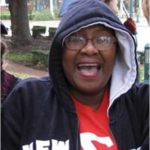 Dr. Peaches Henry is a graduate of the University of Texas. She received both her master’s and doctorate in English from Columbia University in New York. She is an English Professor at McLennan County Community College. She is the current president of the Waco McLennan County branch of the NAACP.
Dr. Peaches Henry is a graduate of the University of Texas. She received both her master’s and doctorate in English from Columbia University in New York. She is an English Professor at McLennan County Community College. She is the current president of the Waco McLennan County branch of the NAACP.
The Act Locally Waco blog publishes posts with a connection to these aspirations for Waco. If you are interested in writing for the Act Locally Waco Blog, please email [email protected] for more
By Robert Callahan
I don’t talk seriously about race much because our culture is burned out on it. Somehow we’ve departed from “I have a dream” to “I don’t wanna’ hear it”. So I’m judicious in my discussions of race. I use it sparingly so that when I do, it will count. Now I feel compelled to.
I grew up in a time & place where it was not socially acceptable to be black. If you wanted to see a movie with a black actor, you drove 45 minutes away to the St. Vincent Mall b/c that was the “Black” mall. Pierre Bossier Mall was the “White” mall & only played “white” movies.
Teachers spoke down to me. Students used the N word in front of other students & teachers with impunity. One sweltering Louisiana summer day, I waited outside a friend’s house, drinking from a hose while all my other friends took turns using the bathroom and getting water inside because my friend’s daddy didn’t want N*****s sitting on his toilet. When I was about eight, I recall running out of a restaurant screaming I didn’t want to be Black because my little heart couldn’t take it anymore. It was hell.
Regardless, I was a military brat, so as we moved I learned to adapt. Evolve. Adjust. Blend in. By the time I went to college in the North, I thought racism wouldn’t follow me.
I discovered I was wrong every time I drove through Idaho. One night, Rick Steadman, and others were with me as we left a carnival and I was “asked” to step out of a car by four officers at gun point because I fit the vague description of an escaped convict: black. No lie. I thought I was going to die that night. We all drove home silent. In tears.
Now I am married to a beautiful, white woman. We have beautiful children. When we married, I had to turn my back on my family that didn’t support our interracial marriage because I clung to the hem of my belief in God’s sovereignty more than the opinions of man.
We teach our children the values of truth, righteousness, and justice in a fallen world. One day we will teach them not to frequent certain places at certain times of night. Likewise, we’ll teach them how to interact with law enforcement officers during a traffic stop. That’s our reality.
Even still, what happened in our nation this week was a travesty. We began with a glimmer of hope that we could begin talking about race intelligently. That hope was lost when anger and ignorance took down our protectors.
Anger. Fear. Division. We scoffed in the ’90’s when black artists & leaders warned that the portrayal of African-Americans as “thugs” or “silly” in entertainment media was dangerous. Yet, the Bible tells us that faith comes by hearing. The seeds of division have been planted and matured to fruition. Now we are reaping a harvest grown from the casual glorification of thug culture and the honest fear of onlookers who think that’s really who we are.
Now, it seems that we’re all separated across a racial chasm as deep as our nation’s sordid history on race relations. Reading the Facebook posts of so many, It would seem as though I have to pick a side: “Are you for Police Officers or Black People?” It’s that simple. Just like that, racism is En Vogue again.
The pendulum has swung back to the place where those ignorant brats I grew up with have become community leaders, and have an excuse to openly use the N word with impunity again. I’m afraid of where we are as a nation.
There is a conversation to be had here. One that requires honesty and vulnerability. It means shutting up and TRYING to hear what the other person is trying to say. People are hurting. LISTEN!
We don’t have to be exclusively, blindly, pro-law enforcement or pro-minority to regain our conscience, our moral compass, or our identity as a nation. I refuse to participate in this debate between whose life does and doesn’t matter which is fueled by our outrage, ignorance, biases, and prejudices.
Treat people the way you want to be treated. If you call yourself a Christian, read your Bible. See what God has to say about the poor, the widow, the orphan, and the oppressed. Ask how what’s actually coming out of the politician’s mouth squares with what the Bible says about those topics. Don’t rush to judgment until you have all the facts. These are the basics. No one should have to remind us of these fundamental lessons in humanity. Even still, lest we forget:
“We hold these truths to be self-evident, that all men are created equal, that they are endowed by their Creator with certain unalienable Rights, that among these are Life, Liberty and the pursuit of Happiness…”
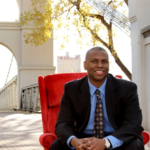 Robert Callahan is a name partner in the firm of Callahan & King, based in Waco, Texas. He is a graduate of Baylor Law School, who previously served in the McLennan County District Attorney’s Office under John Segrest. As a prosecutor, Robert was an advocate for women and children. In 2016, he was inducted into the National Black Lawyers Top 100 membership. Robert and his wife, Mollie, have been married more than ten years and have three children. They are actively involved in Antioch Community Church where Robert provides voluntary legal support and training for Unbound, a ministry that supports victims of Human Trafficking.
Robert Callahan is a name partner in the firm of Callahan & King, based in Waco, Texas. He is a graduate of Baylor Law School, who previously served in the McLennan County District Attorney’s Office under John Segrest. As a prosecutor, Robert was an advocate for women and children. In 2016, he was inducted into the National Black Lawyers Top 100 membership. Robert and his wife, Mollie, have been married more than ten years and have three children. They are actively involved in Antioch Community Church where Robert provides voluntary legal support and training for Unbound, a ministry that supports victims of Human Trafficking.
The Act Locally Waco blog publishes posts with a connection to these aspirations for Waco. If you are interested in writing for the Act Locally Waco Blog, please email [email protected] for more
by Angela Ceccato
1) While mowing a friend’s lawn, I noticed that there were some small overhanging limbs. There was a yard crew next door. I boldly approached two gentlemen of color and asked to borrow their loppers. They agreed and apologized that the loppers were dull. Would either of them have felt comfortable approaching me, if the situation were reversed?
2) I made exasperated (NOT profane) gestures at an inconsiderate driver (a man of color), while driving in a predominantly “black” part of town. Would he have done that in my neighborhood regardless of how my driving affected him?
3) I had the joy of reading to children at Oscar DuConge Park without their parents’ explicit permission. Could a group of black women show up with books at Hewitt Park and read to children without parental consent?
4) I MAY or MAY NOT have “run” an orange light on Hewitt Drive. I lost count of the number of “Driving While Black” pullovers I’ve seen on Hewitt Drive.
If you are mentally making excuses to discount race in these instances, you are privileged as well. It is OUR responsibility to address the racial disparity that exists in our community. I never had to teach my boys how to behave, when approached by police. That is a luxury many in our community do not share. With privilege comes responsibility.
 Angela Ceccato was moved to Waco, when she was twelve and chose to raise three beautiful brilliant children in the Greater Waco area. She’s a social worker for Waco ISD and is passionate about all children growing into their full potential. She and her spouse are adjusting to the empty nest and enjoy exploring Downtown Waco, hiking, reading, and occasional Netflix binges.
Angela Ceccato was moved to Waco, when she was twelve and chose to raise three beautiful brilliant children in the Greater Waco area. She’s a social worker for Waco ISD and is passionate about all children growing into their full potential. She and her spouse are adjusting to the empty nest and enjoy exploring Downtown Waco, hiking, reading, and occasional Netflix binges.
by Ashley Bean Thornton
“I tried to see a friendly face somewhere in the mob – somebody who maybe would help. I looked into the face of an old woman, but when I looked at her again, she spat on me.”
— Elizabeth Eckford, one of the Little Rock Nine
In September of 1957, nine African American high school students enrolled in formerly all-white Central High School in Little Rock, Arkansas. Arkansas Governor, Orval Faubus, welcomed the students, saying: “We have done some terrible things in this country – we enslaved people, we oppressed people, we killed people – based on nothing more than skin color. We can never erase these things, and we must never forget them, but we can and do repent of them. We are humbled, today, to be on the front lines of righting a great injustice. We look forward to beginning a process of racial integration that will benefit all our citizens, Black and White! For too long our schools have been segregated. For too long the Black students in our state have had to make do with inferior facilities and materials. For too long our communities have missed out on the full benefit of nurturing and feeding and growing and celebrating the minds and hearts and spirits of these beautiful young people. I am here today to throw open these doors in welcome, to usher in these nine exceptional students, and to usher in along with them a new era of freedom, justice and prosperity for the great state of Arkansas and, indeed for our whole nation.”
Oh, White America! How different our world might be if this were the story we could tell!
It is not.
Instead of giving these nine young people the heroes’ welcome they deserved, we met them with angry mobs and screaming. Instead of welcoming them, we threatened them and spat on them. We closed down the school district for a year rather than integrate it. When that didn’t work, we abandoned it. We ran away.
I’m not just talking about Little Rock any more, I’m talking about cities across the South, throughout the country…We moved out of the city. We created White suburbs and we put in place deed restrictions and loan restrictions at the bank so that the Black children could not follow us.
Now, almost sixty years later, we no longer have to scream and spit. Now instead of saying we moved out of town to “get away from the Blacks” we can say we moved out because “we want our kids to go to a good school.” Who can blame us for that? Never mind that our schools are “good” because rather than lean toward fairness and equality, rather than work for schools that could have benefited all children, we chose to gather up our resources (earned, certainly, but earned on a playing field that was anything but fair) and move to a place where Black children could not follow.
Now, a generation or so into our re-segregated lives, we feel perfectly justified in saying, “I’m not prejudiced or anything, but why should my hard earned tax dollars go to support a school system where my kids don’t even go?”
And so the struggling school districts keep struggling.
And so, the richer folks, who just happen to generally also be the Whiter folks, get better schools. And, the people who get better educations, as we know, get better jobs…and so on, and so on…
And what about the ones who were left behind? The ones without the good schools…the ones who are getting worse and worse educations, and worse and worse jobs? The ones who just happen to generally also be Blacker? It’s actually pretty easy not to see them.
And then someone…a young black man…gets killed. And another. And another. And another. And then five police officers are killed. And then we are wondering, what’s happening? No place feels safe anymore. What’s going on?
What’s going on, White America, is that we did a bad thing, many bad things. We enslaved people, we oppressed people, we killed people — based on nothing more than skin color. We treated our fellow human beings as less than human. We believed ourselves to be better than them. And when the time came to repent, to turn around, to acknowledge our wrongs and to sincerely devote ourselves to doing right, we did not. We still have not.
Instead of throwing the doors open wide, we called in soldiers to keep the door shut. When that didn’t work, instead of staying and building schools and communities where we could all live and thrive together, we grabbed our stuff and ran away. We figured out a way to build a society that has allowed us to continue to accrue the benefits of being White without having to admit to the unpleasantness of racism. At every step we have done the least we could do, and fought like Hell not to do that.
And now we White people realize something that Black people have known for a long time. The situation is dangerous. We are worried and afraid. We made this situation, White people, and it is going to be hard to fix it. And we will never fix it unless we take responsibility for it. If guilt is what it takes for us to take responsibility, then we need to admit our guilt. If self-interest is what it takes to take responsibility, then we need to realize that we will all be better off when our Black Brothers and Sisters are better off. If religious conviction is what it takes for us to take responsibility, then we need to pray to God to give us a hunger for righteousness. We need to take the responsibility. We need to shine a light on the disparities that still exist between the races, and we need to get to work doing our part to fix them.
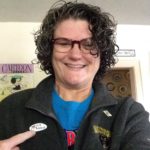 This Act Locally Waco blog post is by Ashley Bean Thornton, she works at Baylor, helps out with Act locally Waco, and facilitates the Waco Foundational Employment Network which is a part of Prosper Waco. She likes to walk and doesn’t mind at all if you honk and wave when you see her.
This Act Locally Waco blog post is by Ashley Bean Thornton, she works at Baylor, helps out with Act locally Waco, and facilitates the Waco Foundational Employment Network which is a part of Prosper Waco. She likes to walk and doesn’t mind at all if you honk and wave when you see her.
The Act Locally Waco blog publishes posts with a connection to these aspirations for Waco. If you are interested in writing for the Act Locally Waco Blog, please email [email protected] for more information.

